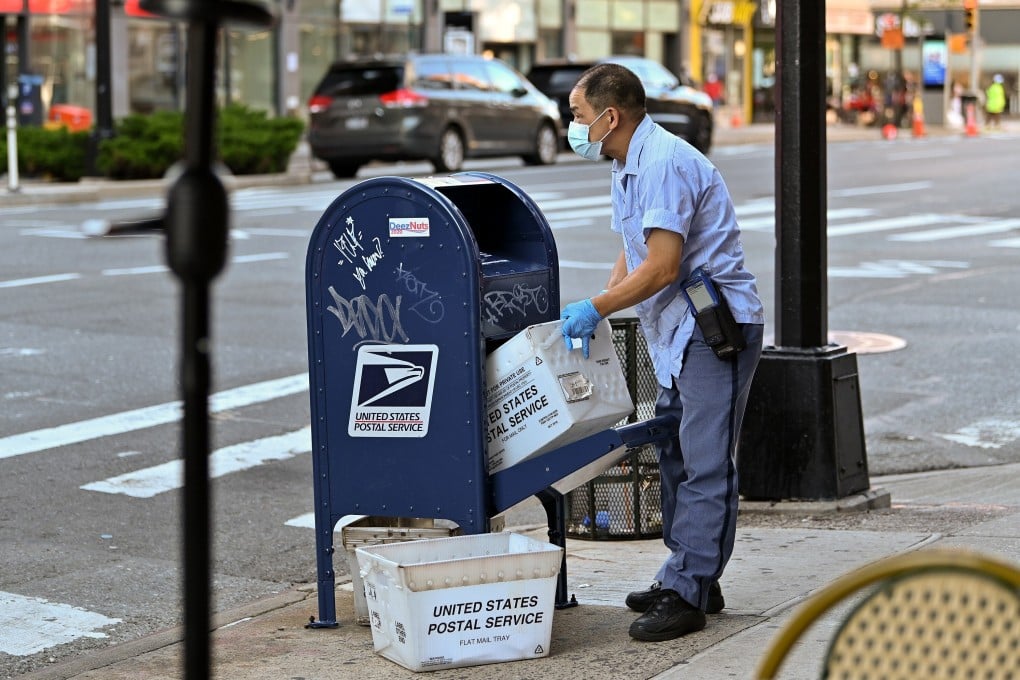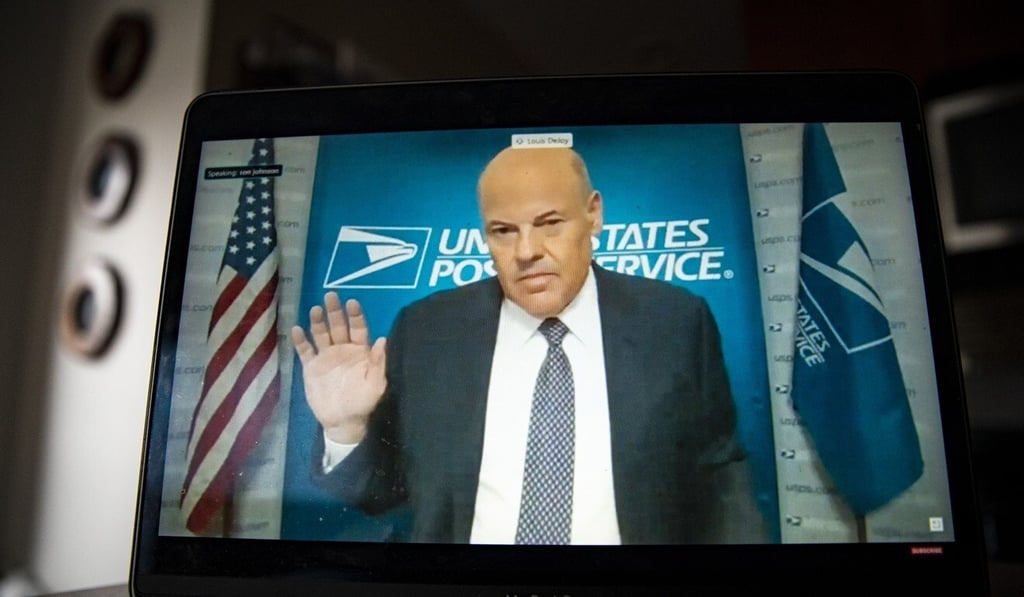US postal chief tells Congress election mail will be handled ‘securely and on time’
- Louis DeJoy said postal workers will prioritise election mail as they have in the past, adding that he would personally vote by mail
- Trump has repeatedly and without evidence said that an increase in mail-in ballots would lead to a surge in fraud

US Postmaster Louis DeJoy on Friday told lawmakers that the Postal Service has not changed the way it handles election mail as he sought to assure the public that ballots would be handled “securely and on time” in the November presidential election.
In his first public appearance before Congress, DeJoy sought to tamp down Democratic concerns that service delays prompted by his cost-cutting measures could result in millions of uncounted ballots in the November 3 election and help Republican President Donald Trump.

DeJoy, who has donated millions of dollars to Trump and other Republicans, said he has not spoken with the Trump campaign or White House Staff Mark Meadows about postal service operations. DeJoy said postal workers will prioritise election mail as they have in the past, adding that he would personally vote by mail.
“As we head into the election season, I want to assure this committee and the American public that the Postal Service is fully capable and committed to delivering the nation’s election mail securely and on-time,” he said. “This sacred duty is my number one priority between now and Election Day.”
But DeJoy said he would not bring back mail-sorting machines that have been pulled from service in recent weeks, saying they were not needed.